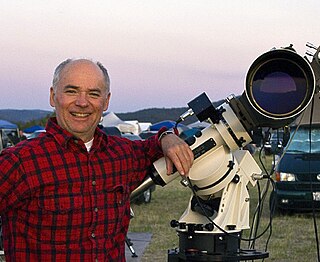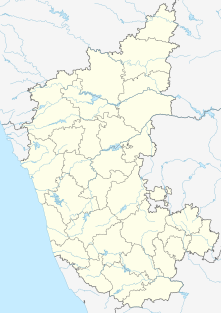
Herbert Alexander Simon was an American economist, political scientist and cognitive psychologist, whose primary research interest was decision-making within organizations and is best known for the theories of "bounded rationality" and "satisficing". He received the Nobel Prize in Economics in 1978 and the Turing Award in 1975. His research was noted for its interdisciplinary nature and spanned across the fields of cognitive science, computer science, public administration, management, and political science. He was at Carnegie Mellon University for most of his career, from 1949 to 2001.
A startup or start up is a company or project initiated by an entrepreneur to seek, effectively develop, and validate a scalable business model. Hence, the concepts of startups and entrepreneurship are similar. However, entrepreneurship refers to all new businesses, including self-employment and businesses that never intend to grow big or become registered, while startups refer to the new businesses that intend to grow beyond the solo founder, have employees, and intend to grow large. Start ups face high uncertainty and do have high rates of failure, but the minority that go on to be successful companies have the potential to become large and influential. Some startups become unicorns, i.e. privately held startup companies valued at over US$1 billion.]]

A business model describes the rationale of how an organization creates, delivers, and captures value, in economic, social, cultural or other contexts. The process of business model construction and modification is also called business model innovation and forms a part of business strategy.
Bounded rationality is the idea that rationality is limited when individuals make decisions: by the tractability of the decision problem, the cognitive limitations of the mind, and the time available to make the decision. Decision-makers, in this view, act as satisficers, seeking a satisfactory solution rather than an optimal one.

An organization or organisation is an entity comprising multiple people, such as an institution or an association, that has a particular purpose.
Innovation in its modern meaning is "a new idea, creative thoughts, new imaginations in form of device or method". Innovation is often also viewed as the application of better solutions that meet new requirements, unarticulated needs, or existing market needs. Such innovation takes place through the provision of more-effective products, processes, services, technologies, or business models that are made available to markets, governments and society. An innovation is something original and more effective and, as a consequence, new, that "breaks into" the market or society. Innovation is related to, but not the same as, invention, as innovation is more apt to involve the practical implementation of an invention to make a meaningful impact in the market or society, and not all innovations require an invention. Innovation often manifests itself via the engineering process, when the problem being solved is of a technical or scientific nature. The opposite of innovation is exnovation.

Western Institute of Technology and Higher Education — distinct from the state University of Guadalajara — is a Jesuit university in the Western Mexican state of Jalisco, located in the municipality of Tlaquepaque in the Guadalajara Metropolitan Area.

Social entrepreneurship is an approach by start-up companies and entrepreneurs, in which they develop, fund and implement solutions to social, cultural, or environmental issues. This concept may be applied to a wide range of organizations, which vary in size, aims, and beliefs. For-profit entrepreneurs typically measure performance using business metrics like profit, revenues and increases in stock prices. Social entrepreneurs, however, are either non-profits, or they blend for-profit goals with generating a positive "return to society". Therefore, they must use different metrics. Social entrepreneurship typically attempts to further broad social, cultural, and environmental goals often associated with the voluntary sector in areas such as poverty alleviation, health care and community development.
Intrapreneurship is the act of behaving like an entrepreneur while working within a large organization. Intrapreneurship is known as the practice of a corporate management style that integrates risk-taking and innovation approaches, as well as the reward and motivational techniques, that are more traditionally thought of as being the province of entrepreneurship.

Andrew Oswald was until recently the acting research director at the IZA Institute in Bonn and is a professor of economics at the University of Warwick, UK. He is an ISI highly cited researcher and has been a professorial fellow of the ESRC. He is currently a member of the board of editors of Science. He held previous posts at Oxford, the London School of Economics, Princeton, Dartmouth and Harvard.
Bruce Firestone of Ottawa, Ontario, is a real estate developer, former sports team owner and university professor. He is the founder of the modern-day Ottawa Senators NHL professional ice hockey club and former part-owner of the Ottawa Rough Riders CFL football club.
Change management is a collective term for all approaches to prepare, support, and help individuals, teams, and organizations in making organizational change. The most common change drivers include: technological evolution, process reviews, crisis, and consumer habit changes; pressure from new business entrants, acquisitions, mergers, and organizational restructuring. It includes methods that redirect or redefine the use of resources, business process, budget allocations, or other modes of operation that significantly change a company or organization. Organizational change management (OCM) considers the full organization and what needs to change, while change management may be used solely to refer to how people and teams are affected by such organizational transition. It deals with many different disciplines, from behavioral and social sciences to information technology and business solutions.
Fábio Luiz de Oliveira Rosa is a Brazilian social entrepreneur whose initiatives have focused on rural electrification and the use of renewable energy sources.
A corporate social entrepreneur (CSE) is someone who attempts to advance a social agenda in addition to a formal job role as part of a corporation. CSEs may or may not operate in organizational contexts that are predisposed toward corporate social responsibility. CSEs's concerns are with both the development of social capital and economic capital, and the formal job role of a CSE may not necessarily be connected with corporate social responsibility, nor does a CSE have to be in an executive or management position.

Kenneth Lafferty Hess is an engineer, author, entrepreneur, and philanthropist. Hess is founder and president of Science Buddies, a non-profit organization dedicated to furthering science literacy through the creation of free resources and services for K-12 students, teachers, and families. He holds one of the first software patents ever granted and has designed and/or developed dozens of commercial software, content, and Internet products, including Family Tree Maker, one of the all-time best-selling home software programs. Among his awards are a PC Magazine Editor's Choice, PC Magazine Top 100 Web Site, a Codie award and a Science Prize for Online Resources in Education (SPORE).

Bijoy Krishna Goswami was a prominent Hindu social reformer and religious figure in India during the British period.
Innovation districts are zones in cities where public and private actors work to attract entrepreneurs, startups, business incubators, generally with the aim of revitalizing depressed downtown areas. The first, 22@ in Barcelona, Spain, was launched in 2000; as of 2019, there are more than 80 worldwide.
Customer development is a formal methodology for building startups and new corporate ventures. It is one of the three parts that make up a Lean Startup.










